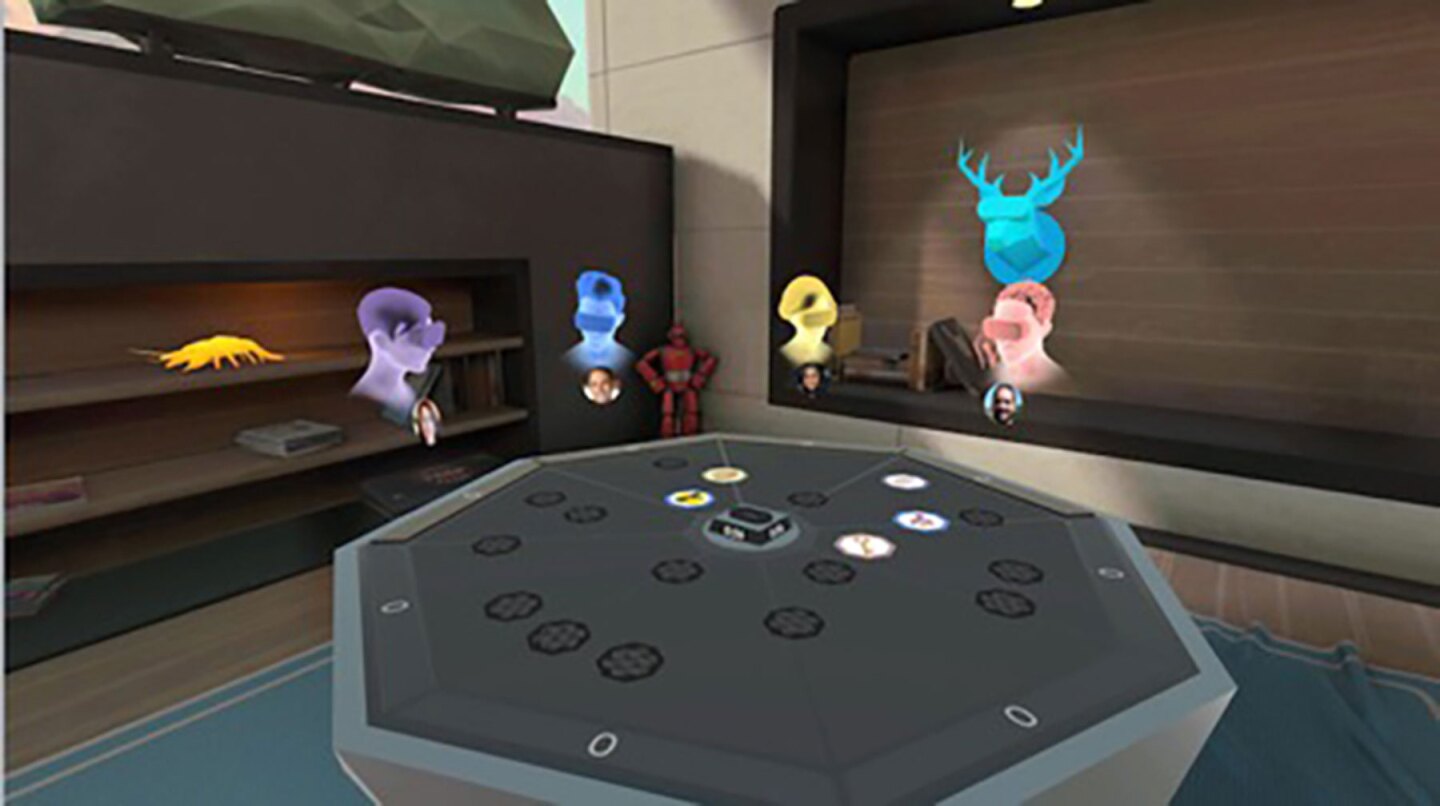Up until this point, the VR experience has primarily been a solo one. Hardware and content limitations make isolation a necessary byproduct of immersion. But according to Mark Zuckerberg, a whole new social dynamic is coming to VR. It is the computing platform of the future, he says, and it will put people first.
Onstage at the third annual Oculus Connect convention this morning, Zuckerberg gave a live VR demo in which he interacted with two other remote presenters represented as cartoon avatars. The avatars could speak in real-time, convey facial expressions and gestures, view images, play games, watch videos, change locations and take calls.
Zuckerberg's demo version is not available to consumers, but immediately afterward, Oculus announced Parties and Rooms, new features that will similarly allow users to convene virtually. Parties conducts group voice calls for up to eight users from anywhere in VR. Rooms are virtual spaces where each user, represented by a custom avatar with millions of permutations, can watch movies and play games together.

Zuckerberg's demo and the new types of Oculus interactions embody an important shift in the personal computing ecosystem. Unlike using a smartphone, where each app performs specific functions and only one app can be opened at a time, accessing entertainment in the VR environment invites a real-life feel: talk to friends, show them pictures, or play games without leaving the (virtual) table where you're gathered.
It also opens the door to a much-needed communal energy. Up until this point, there was no way for VR consumers to interact with each other beyond the occasional multiplayer game. By and large, the headset experience disconnected the user not only from their own surroundings, but from other people as well. This humanizing new ecosystem could help propel VR beyond its current audience – primarily the gaming community – and into the imaginations (and onto the faces) of more and more users.
It could also help Oculus get a leg up over its competitors. The emphasis on human interaction – remember, this is a Facebook company we're talking about – could make Oculus products more fun than their better-equipped (at least before today) competitors, such as the HTC Vive. We've always given the Vive high marks for details like its positional tracking and base stations, but the ability to facilitate socialization will likely become a deciding factor for many people on the market for a VR headset.

Of course, the demand for social VR will only increase as it attracts more users. To this end, Oculus announced steps toward more affordable and better performing hardware coupled with richer, more entertaining content. But for now, the Facebook-backed emphasis on personal connections within the VR world seems to be a uniquely Oculus stride forward.






